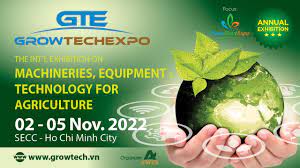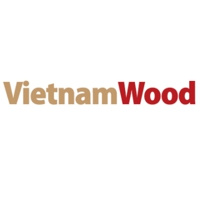- Read all
- Rice
- Fisheries
- Cassava
- Fertilizer & Pesticide
- Coffee
- Animal Feed
- Cocoa
- Seed
- Tea
- Wood
- Pepper
- Agricultural Cooperations
- Cashew
- Agricultural Investments
- Rubber
- Governmental Policies
- Sugarcane
- Agricultural Startup Ecosystem
- Corn
- Technological Innovations
- Spices
- Organic Agriculture
- Bean
- Food Manufacturing
- Fruit & Vegetable
- Agricultural Value Chain
- Flower
- Water & Waste Management
- Meat
- Processed Food
- Dairy
- Plant Originated Products
- General Agro Commodities
- Animal Originated Products
AGRI-TRANSITION PARALLEL WITH INDUSTRIALIZATION AND MODERNIZATION
November 23, 2021
On November 12th, the workshop "Orientation to transform Vietnam's agriculture towards modernity and sustainability in association with the country’s industrialization and modernization" took place in Hanoi.

The workshop took place in Hanoi both in the live and online form. Photo: Samuel Pham.
The workshop received the participation of Mr. Tran Thanh Nam, Deputy Minister of Agriculture and Rural Development; Mr. Nguyen Duy Hung, Deputy Head of the Central Economic Commission, Deputy Head of the Standing Committee of the Steering Committee for the summary of Resolution No. 26; Mr. Cao Duc Phat, former Deputy Head of the Central Economic Commission, former Deputy Head of the Standing Committee of the Central Steering Committee for the summary of Resolution No. 26, together with the leaders of General Departments, Departments, institutes, and academies under the Ministry.
Deputy Minister Tran Thanh Nam affirmed the extremely important role of agriculture in economic development and social stability, especially when the economic picture seems difficult, and the current impacts of the Covid-19 epidemic remain complicated. Agriculture has contributed to firmly ensuring national food security and sustainability as well as poverty reduction.

Deputy Minister Tran Thanh Nam affirmed the extremely important role of agriculture in economic development and social stability. Photo: Samuel Pham.
Dr. Tran Cong Thang, Director of the Institute of Policy and Strategy for Agriculture and Rural Development (IPSARD), shared his understanding of the concept "Agricultural transition" by quoting Mr. Peter Timmer (Harvard Professor Emeritus, a leading scientist in the field of agriculture and rural development):
"Agricultural transition is the process by which a food system transitions from subsistence, predominantly agricultural farming, to a commodity food system, where higher productivity and non-agricultural economics are the focus."
Vietnam's agriculture in recent years has been experiencing high growth, ensuring the stability of the national economy. This creates the foundation for the country’s industrialization and modernization of the country.
The contribution of science and technology to the agricultural transition in Vietnam has been on a constant rise. Thanks to the application of many farming solutions and changes in plant varieties structure, agro-forestry-fishery products have had remarkable growth in terms of productivity and output, reaching the world’s top charts (rice, coffee, pepper, cashew, etc).

In the new context of challenges and opportunities, Dr. Tran Cong Thang believes that agricultural transition needs to be associated with the process of industrialization and modernization, focusing on two points: “modern” and “sustainable”.
However, Vietnam's agricultural transition still has some limitations. Despite having entered the stage of "industrialization and urbanization", the transition speed is relatively slow. The foundation for agricultural development is not solid, reflected in the unsustainable production, growth being easily affected by input resources deficit, high risks, and heavy dependence on imported raw materials.
The scientific and technological research and application system, as well as practices, lack profoundness. Technology is still dependent on external sources, not to mention there is a shortage of leading scientists in the industry.
The transition trend in the process of industrialization and modernization has led to a decrease in the proportion of laborers in agriculture, while the training of rural workers can yet follow the country’s industrialization and modernization process. This results in the fact that labor migration is taking physical and intellectual resources away from rural areas. In the new context of challenges and opportunities, Dr. Tran Cong Thang believes that agricultural transition needs to be associated with the process of industrialization and modernization, focusing on two points: “modern” and “sustainable”.
“Modern” agriculture needs to follow the path of reason, harmonious combination, and continuous consolidation of the elements constituting agriculture, in line with the propensity of agricultural transition and the nation’s economic development process.
"Modern" agriculture takes production reorganization (especially cooperative economic development) as the foundation and the application of advanced, modern, and appropriate science and technology (increase in agro-products knowledge content) as the driving force for the transition process.

Mr. Cao Duc Phat, former Deputy Head of the Standing Committee of the Central Steering Committee for the summary of Resolution No. 26. Photo: Samuel Pham.
“Sustainable” agriculture focuses on ecological agriculture in an integrated approach, simultaneously applying many principles that ensure economic, social and environmental benefits in order to optimize the relationship between crops - livestock - people - environment.
Developing “sustainable” agriculture requires diversity. This includes the combination of modern science with indigenous traditional knowledge, the improvement in natural resource usage efficiency, climate resilience, and promotion of indigenous cultural values, thereby increasing people's incomes, creating community relations, and ensuring social fairness in rural areas.
Sharing at the workshop, Mr. Cao Duc Phat said that the trend of the times is “an inclusive-developing economy that creates conditions for all people to participate and benefit from its development process, "leaving no one behind". The Communist Party of Vietnam has advocated the implementation of social advancement and justice in each development policy as a feature of the socialist-oriented market economy.
In the “integrating agriculture into the macroeconomy” period, a number of key solutions include:
Strengthen the application and transfer of science and technology, especially high technology and digital technology;
Shift from high-yield agriculture to high-value agriculture;
Develop disease-free production areas (specializing in rice cultivation, vegetables, flowers, fruit trees, industrial plants, animal husbandry, aquaculture, production forests, etc), ensuring technical standards certified for sustainable production (VietGAP, GlobalGAP...);
Develop industry and services in rural areas in association with training agricultural laborers;
Focus on developing agricultural land market to accumulate production, increase scale and promote mechanization in the production chains;
Complete the policy system: land, investment, businesses attraction, science and technology;
Strengthen the spatial connection between agriculture and industry and services, between rural and urban development.
Related news
-
ASEAN cooperates on digitalization in aid of rural development
In rural regions, digitalization and technological innovation present both benefits and obstacles.September 5, 2022 -
Heighten Vietnam - USA cooperation relationship through agriculture
(VAN) Through 8 proposals to the new US Agricultural Counselor, Deputy Minister Nguyen Hoang Hiep hoped that trade between the two countries would soon regain its growth momentum.November 23, 2022 -
Opportunities for Long An agricultural products to enter the Korean market
Long An province invites Korean businesses to continue investing in the agricultural product processing industry, logistics, health, beauty and importing dragon fruit products, lemons, bananas, rice...August 30, 2022
Events See more

Vietnamplas 2022 - Vietnam International Plastic and Rubber Industry Exhibition
23-03-2023 - 26-11-2022 09:00 - 17:00
Saigon Exhibition and Convention Center (SECC) – 799 Nguyen Van Linh Boulevard, District 7, City. Ho Chi Minh.

GROWTECH EXPO - FLORAPLANTEXPO 2021
02 - 05-11-2022 09:00 - 17:00
Saigon Exhibition and Convention Center (SECC) – 799 Nguyen Van Linh Boulevard, District 7, City. Ho Chi Minh.

VTG 2022
18 - 25-10-2022 09:00 - 17:00
Saigon Exhibition and Convention Center (SECC) – 799 Nguyen Van Linh Boulevard, District 7, City. Ho Chi Minh.

VIETSTOCK 2022 - SPECIALISED EXHIBITION OF LIVESTOCK, FEED AND MEAT PROCESSING IN VIETNAM
12 - 14-10-2022 08:00 - 17:00
799 Nguyen Van Linh, Tan Phu Ward, Dist. 7, Hochiminh City, Vietnam

VTG 2022
21 - 27-09-2022 09:00 - 17:00
Saigon Exhibition and Convention Center (SECC) – 799 Nguyen Van Linh Boulevard, District 7, City. Ho Chi Minh.
.png)
VIETFISH 2022
22 - 26-08-2022 09:00 - 17:00
Saigon Exhibition and Convention Center (SECC) – 799 Nguyen Van Linh Boulevard, District 7, City. Ho Chi Minh.
Business Opportunities See more
-
BURANI INTERFOOD is looking for Buyers in Vietnam
Type:
November 22, 2021
-
BURANI INTERFOOD is looking for Buyers in Vietnam
Type: Wholesaling Meat
November 22, 2021
-
BURANI INTERFOOD is looking for Buyers in Vietnam
Type: Wholesaling Meat
November 22, 2021
-
BURANI INTERFOOD is looking for Buyers in Vietnam
Type: Wholesaling Meat
November 19, 2021
-
BURANI INTERFOOD is looking for Buyers in Vietnam
Type:
November 19, 2021
-
Indian purchaser looking for high quality cashew nut kernel from Vietnam
Type: Exporting Cashew
Mar 14, 2016
534
Limitless database of qualified and verified agricultural partners
124
Exclusive buy & sell leads on specific agricultural commodities
24
Agricultural events in Vietnam and Asia Pacific region
Stay informed!
Enter your email address below to receive updates each time we publishes new content
